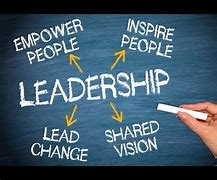Recognizing tomorrow’s leaders today is vital for your company’s long-term success. Here’s the only checklist you need.
An organization needs to put a structured plan in place for leadership continuity. For that to happen, it needs to zero in on individuals who have leadership potential.
This ongoing task needs to be an essential component of an organization’s growth strategy.
WHY IS IT IMPORTANT?
Leaders are change agents who play a transformational role in an organization’s efforts to overcome market challenges. If your organization faces a leadership vacuum at any given point in time, then it will be unable to achieve its growth targets.
To demonstrate your organization’s commitment toward innovation and high-quality products and services, you need leaders who have the authority and credibility needed to push the workforce to meet this goal.
You need to find leaders from inside your organization because they are well versed with the processes, systems, organization structure, and work culture already in place. They are also aware of the organization’s strengths–and, more importantly, weaknesses. This allows them to take better and more informed growth-oriented decisions.
Let’s face it: The root of every successful business is timely decision-making. If you don’t have the leaders to make such decisions, then your business will flounder.
How do you go about finding leaders from within your organization?
1. FOCUS ON HIGH POTENTIAL–NOT PERFORMANCE
Employee performance defines ability and expertise. It is a parameter you must keep in mind to identify a leader, but look beyond performance. What you also need to look for is the employee’s aptitude, desire to grow, and overall potential.
Some individuals are not cut out to be leaders, although their performance is at the higher end of the scale. They don’t have the capacity to play leadership roles, and are content to be followers. This is why potential should outweigh performance as a parameter when zeroing in on a possible future leader.
2. NOTE LEVEL OF ENGAGEMENT
An individual must feel invested in a company’s goals and should see his professional achievements through the prism of company growth.
Ask yourself: “Does the employee proactively make suggestions for process improvement, or show interest in going beyond his/her brief to achieve tangible results for the organization?” If the answer is yes, then you have probably identified an employee who has the makings of a future leader.
3. CATALYST OR WATCHER?
You’ll find people in your organization who make things happen–those who make decisions necessary to take projects to their logical conclusion–while others prefer to watch and wait for things to happen before they are sucked into proceedings. The former have “leader” written all over them. They facilitate project completion by becoming an integral part of the decision-making process.
4. ARE THEY ACCOUNTABLE?
Employees who hold themselves answerable for failure can be identified as leaders. If you see individuals shying away from taking responsibility for their actions because it might reflect poorly on them, then they aren’t leader material. Leaders aren’t afraid to hold themselves accountable for failure.
5. OBSERVE MULTITASKING ABILITIES
If you think you’ve identified potential leaders among your workforce, give them some extra responsibilities. Throw them in at the deep end and keep tabs on how they swim. Can they handle the extra tasks you’ve assigned, or are they finding it difficult to multitask?
The answer to this question is important because all leaders have to perform more than one task at a time, and perform it to the best of their abilities.
6. EVIDENCE OF EMPATHY AND EMOTIONAL INTELLIGENCE
- Is the individual a good team player?
- Does he or she help others? Or put others before themselves?
- Does he or she take time to interact with other employees?
- Does the employee focus on building personal relationships?
- Is the employee a people person?
If the answer to these questions is an unequivocal yes, then you know you’ve identified a selfless person who gives due weight to personal bonding. He or she has the ability to constructively use understanding of people for the benefit of the organization.
7. REMARKABLE COMMUNICATION SKILLS
All leaders have extraordinary communication skills. If they want to get a particular point across to the people under their watch, they are able to do it effortlessly. Look for a person who has the ability to explain ideas in a clear and concise manner; somebody who deals with specifics and who has the ability to listen.
If you are able to identify an employee who has these qualities and more, you need to start prepping this person for a leadership role in your organization.
